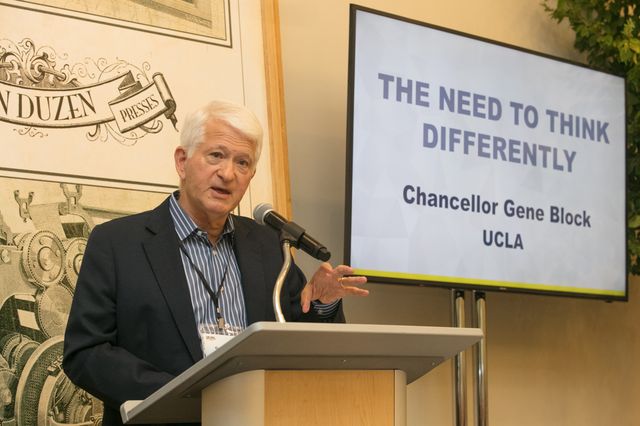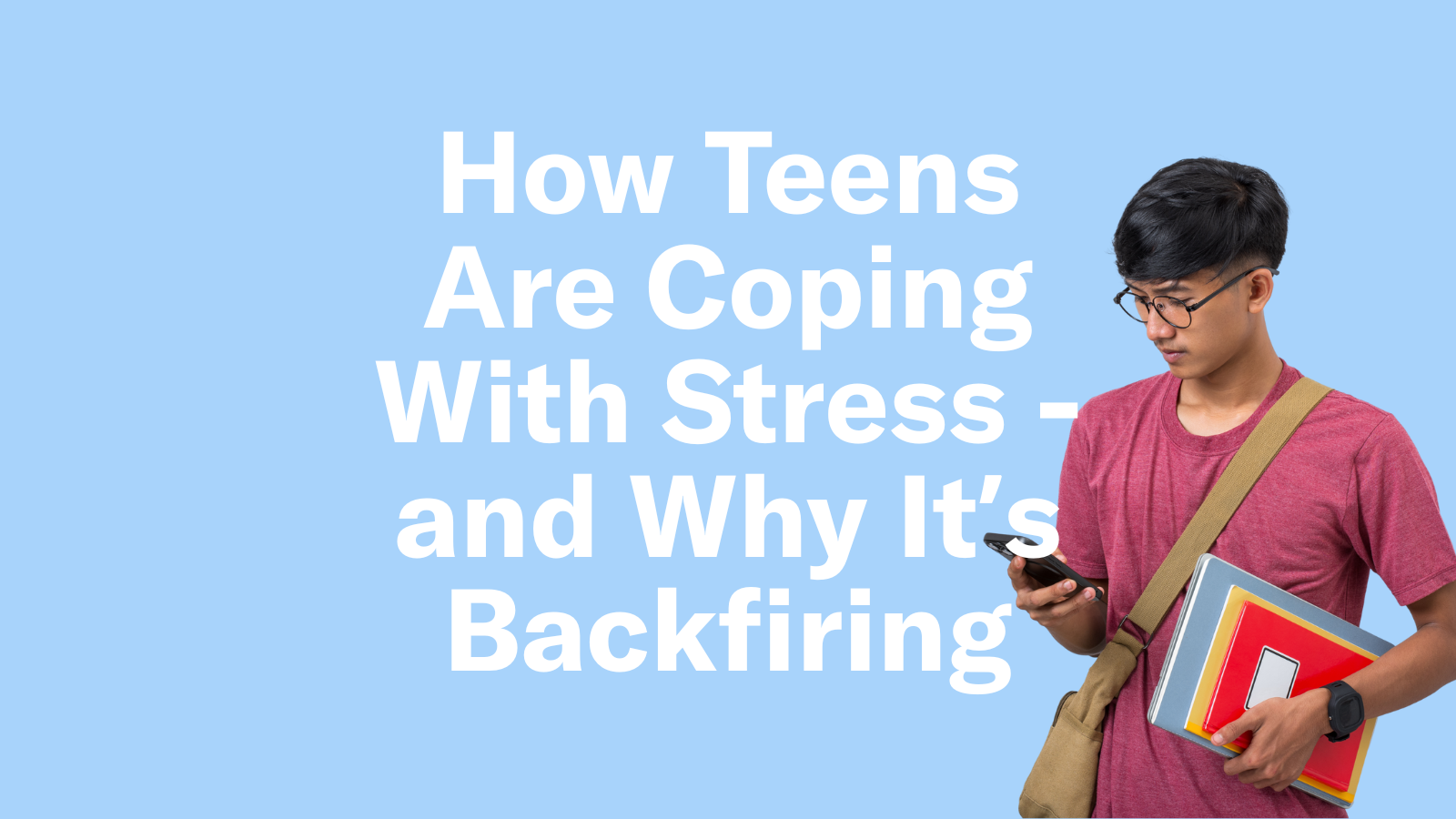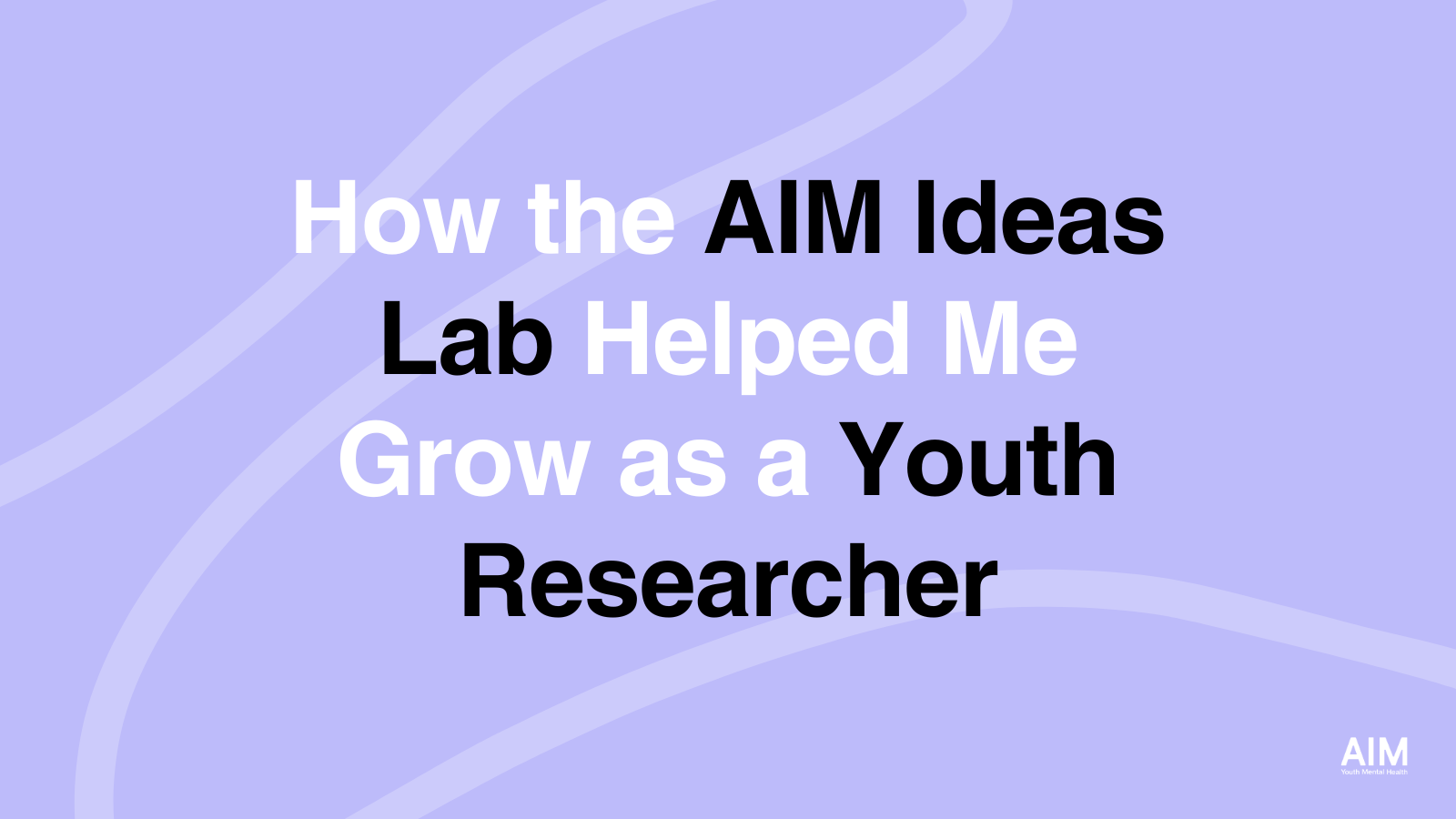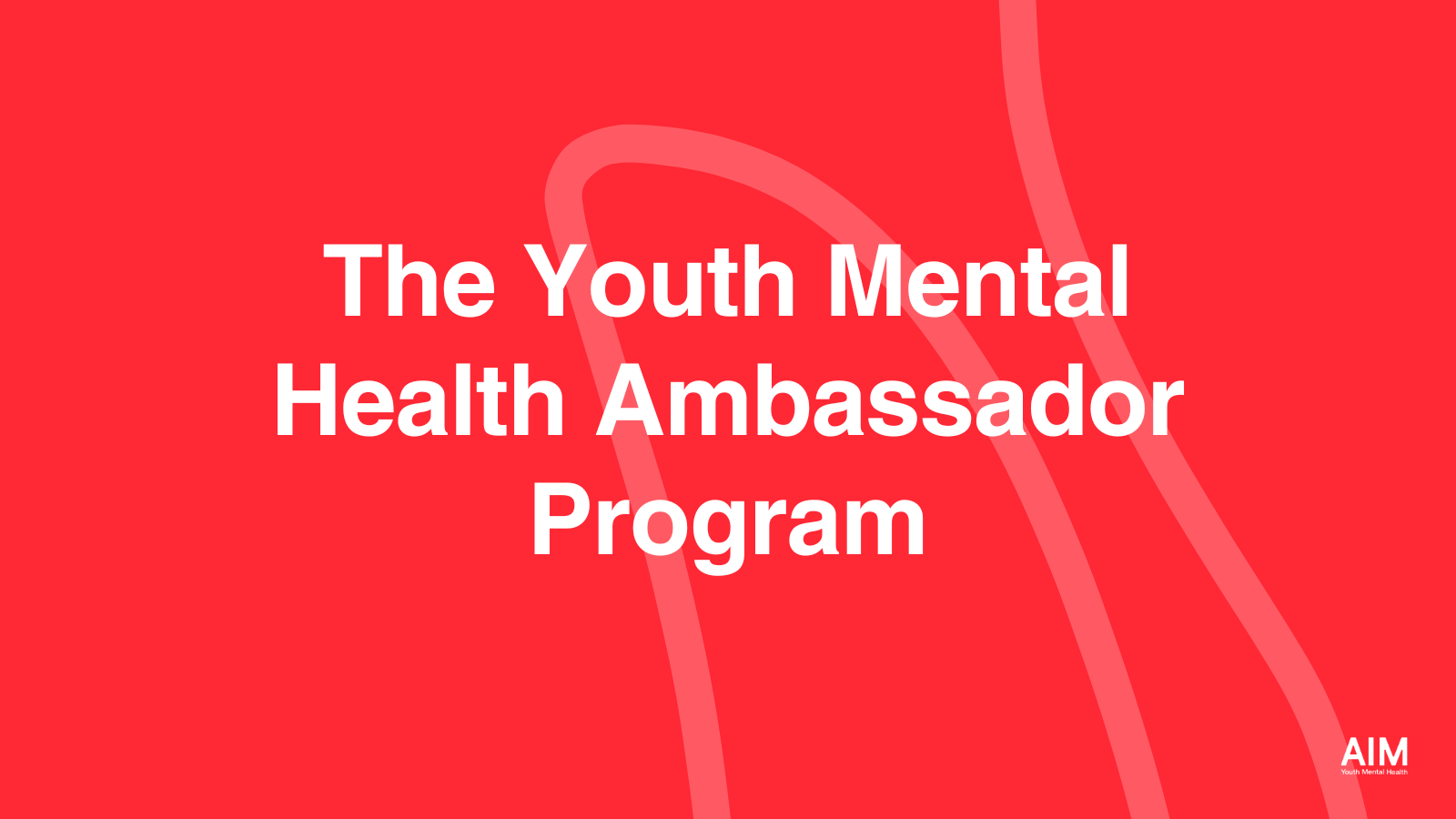BRIAN HAAS | Sept. 14, 2017
Speaking before dozens of influential business and civic leaders about mental health in the workplace, UCLA Chancellor Gene Block announced today the university will for the first time offer free mental health screening and, if appropriate, treatment, to all incoming freshmen and transfer students.
“It affects about 350 million people worldwide, and yet, in my view, depression remains somewhat overlooked and understudied. That depression has not been identified as our number one health issue astounds me,” said Block during his keynote speech at the inaugural One Mind Initiative at Work summit.
The One Mind Initiative was founded by Garen and Shari Staglin as a part of the One Mind Institute, a public nonprofit dedicated to raising awareness, funding research and finding solutions for brain illnesses.
The free mental health screenings, which will eventually be made available to the entire UCLA community, are just one part of the UCLA Depression Grand Challenge, a campuswide effort to reduce the health and economic impacts of depression by half globally by the year 2050. The online screening and treatment program is thought to be the first-ever campuswide mental health screening program conducted at a university.
“Depression has no regard for demographics,” Block told the audience in a hotel conference room in St. Helena, California in Napa Valley.
Garen Staglin said that UCLA’s efforts may serve as a model for how other businesses and institutions tackle the issue of mental health in the workplace.
“One Mind at Work is proud that UCLA as an institution under Gene’s Block’s leadership, is a founder member,” said Staglin, who is also co-chair of the Depression Grand Challenge Leadership Council. “Chancellor Block has been at the forefront of mental health understanding for many years, and has embraced the importance of implementing policies and practice that benefit students and faculty. He has further evidenced this commitment with his support of the launch of the Depression Grand Challenge, a bold effort to reduce the burden of this number one cause of adult disability. As one of Los Angeles’s largest employers, UCLA’s involvement and commitment to mental health is an important step forward which other businesses and institutions should notice and hopefully follow.”
The announcement signals a new phase in the Depression Grand Challenge, which has brought together more than 100 researchers from more than 25 academic departments — and growing — to develop better methods of detecting, evaluating and treating depression. Researchers also aim to eliminate the stigma associated with depression, which is often a barrier to seeking diagnosis and treatment.
The Depression Grand Challenge is being led by Dr. Nelson Freimer, director of the Center for Neurobehavioral Genetics and professor of psychiatry at UCLA and associate director for research programs of the Semel Institute for Neuroscience and Human Behavior. It was announced in 2015, in line with President Barack Obama’s earlier call to companies, universities and other organizations to work innovatively to solve important national and global problems. Its initial phase involved the voluntary screening of more than 1,000 people at UCLA, the treatment of nearly 300 patients and a series of demonstration projects to begin the process of understanding the causes of depression and how depression affects the brain and body.
Continue reading the full article in UCLA Newsroom.





